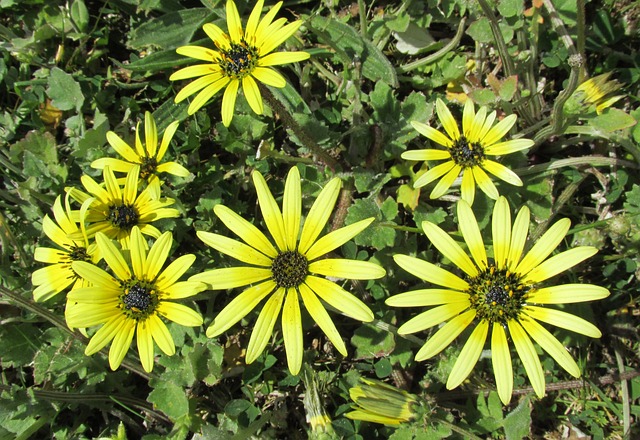2023 marked a significant year for cannabinoid research and legislation, with THCA (Tetrahydrocannabinolic Acid) taking center stage due to its potential health benefits. THCA, a non-psychoactive compound found in cannabis and hemp, has garnered attention for its anti-inflammatory and analgesic properties, particularly in states like Iowa where it's legalized for individuals with qualifying medical conditions. Iowa's legislative update to the Medical Cannabidiol (CBD) law now includes THCA, allowing residents access to products like flowers, provided they contain less than 0.3% delta-9-THC, as regulated by the state's quality control system. The non-psychoactive nature of THCA makes it a viable alternative for pain and inflammation relief without cognitive impairment, aligning with the broader national trend towards embracing cannabinoids for their therapeutic potential. Research is ongoing into its neuroprotective and antioxidant effects, with the aim of developing new health products. THCA's legal status in Iowa exemplifies this evolution, offering a promising natural pain management solution within a regulated framework that reflects both state and federal guidelines on cannabis-derived compounds.
Discover the transformative potential of THCA, the non-psychoactive precursor to THC found in cannabis. This article delves into the myriad benefits of THCA flower, particularly within the legal framework of Iowa. From its healing properties to its role in pain relief and anxiety management, we explore how THCA is carving a niche in health and wellness. As THCA gains traction for its medicinal attributes, understanding its legality and accessibility in Iowa becomes paramount for those seeking its potential advantages. Join us as we navigate the science behind THCA’s anti-inflammatory, neuroprotective, and sleep-enhancing effects, and how it fits into broader cannabis conversations like the entourage effect and therapeutic applications. Whether you’re a patient intrigued by its perceived benefits or a curious consumer, this article aims to inform and guide your journey with THCA flower, ensuring you have a clear grasp of its legal standing and practical use within Iowa’s evolving landscape.
- THCA Flower Benefits Unveiled: A Closer Look at Its Healing Properties
- The Rise of THCA in Iowa: Legality and Accessibility
- What is THCA? Understanding the Cannabinoid Precursor to THC
- Potent Pain Relief: How THCA Flower Can Offer Relief Without Intoxication
- Anti-Inflammatory Effects of THCA in Detail
THCA Flower Benefits Unveiled: A Closer Look at Its Healing Properties
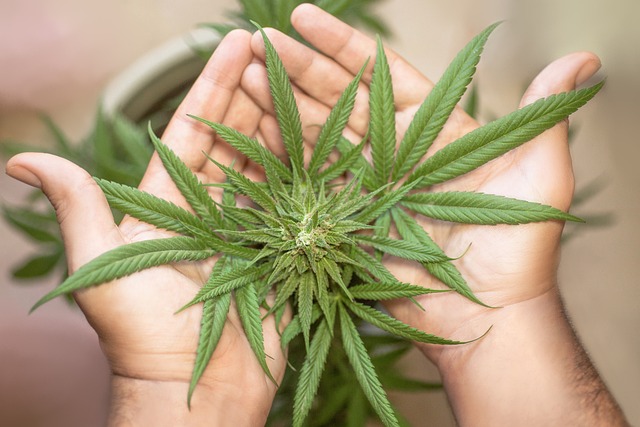
2023 has seen a significant shift in the perception and legislature surrounding cannabinoids, with THCA (Tetrahydrocannabinolic Acid), in particular, gaining attention for its potential therapeutic properties. In states like Iowa, where THCA-rich hemp flowers are legal, enthusiasts and health-conscious individuals are exploring the benefits of this non-psychoactive cannabinoid. THCA is known for its anti-inflammatory and analgesic effects, which can be particularly beneficial for those suffering from chronic pain or inflammation-related conditions. Preliminary studies suggest that THCA may also offer neuroprotective properties, holding promise for future research in neurological disorders. The flower of the hemp plant, when cultivated properly and processed to preserve its THCA content, can be utilized in various forms, from direct consumption to infusions in edibles or topicals. As regulations evolve and more research is conducted, the understanding of THCA’s healing properties continues to expand, offering a natural alternative for wellness and health maintenance within the legal framework established by states like Iowa.
The Rise of THCA in Iowa: Legality and Accessibility
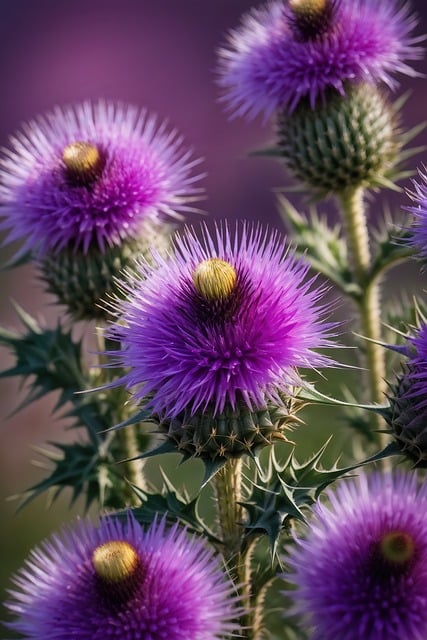
In recent years, the interest in THCA flowers, a non-psychoactive compound found in cannabis and hemp plants, has surged across the United States, with particular attention on its legal status and accessibility within Iowa. As of the knowledge cutoff date, THCA remains a legal entity in Iowa under certain conditions. The state’s legislature passed the Medical Cannabidiol (CBD) law in 2017, which was later expanded to include THCA in its protective scope. This legislative move has paved the way for Iowans with qualifying medical conditions to access THCA products, including flowers, provided they are derived from hemp and contain less than 0.3% delta-9-THC, the psychoactive component of cannabis that is distinct from THCA.
The rise of THCA in Iowa has been marked by a gradual but definite shift towards broader acceptance and availability of these products. Iowans have increasingly recognized the potential wellness benefits of THCA, which include anti-inflammatory and neuroprotective properties that do not induce the high associated with THC. This recognition has led to a growing number of local dispensaries offering THCA flower products, thereby enhancing accessibility for those with medical needs. The state’s regulatory framework ensures that these products are tested for purity and potency, providing consumers with confidence in their purchases. As the market evolves, it is anticipated that THCA will continue to gain traction in Iowa, reflecting a broader trend towards the acceptance of cannabinoids for health and wellness purposes.
What is THCA? Understanding the Cannabinoid Precursor to THC
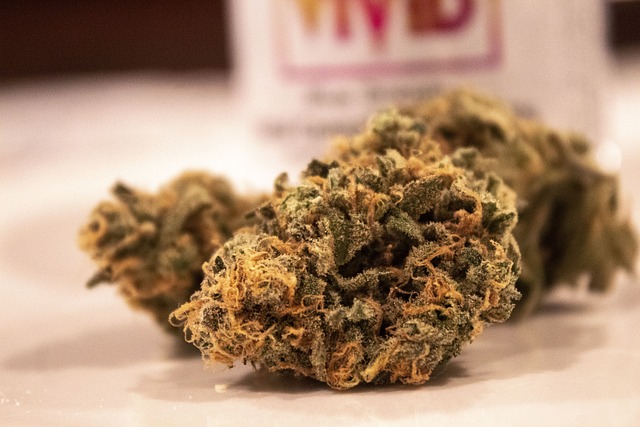
Tetrahydrocannabinolic acid (THCA) is a naturally occurring cannabinoid found in the Cannabis sativa plant, which is the scientific name for hemp and marijuana. THCA is the precursor to tetrahydrocannabinol (THC), the psychoactive compound well-known for its effects when cannabis is smoked or vaporized. Unlike THC, THCA is non-psychoactive, meaning it does not produce the “high” associated with cannabis use. This allows consumers in certain regions like Iowa, where THCA-rich products are legal, to experience the potential therapeutic benefits of cannabis without the psychoactive effects.
The legal landscape for THCA in Iowa has evolved, reflecting a broader national trend towards the legalization and regulation of certain cannabis derivatives. In Iowa, THCA is legal as long as it contains less than 0.3% THC on a dry weight basis, aligning with the federal Farm Bill guidelines. This distinction enables users to explore the potential wellness benefits of THCA, which include anti-inflammatory and neuroprotective properties. Research suggests that THCA may offer relief from pain and nausea, as well as aid in reducing anxiety and inflammation, without the intoxicating effects of its counterpart, THC. As such, THCA is gaining attention in the health and wellness community, particularly in states like Iowa where there is a growing market for cannabinoid products.
Potent Pain Relief: How THCA Flower Can Offer Relief Without Intoxication
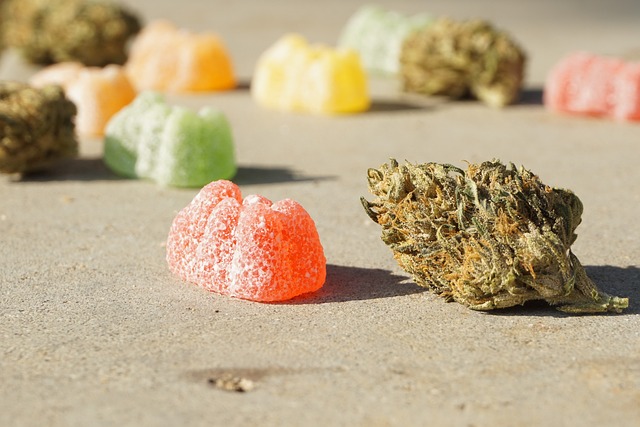
Cannabis enthusiasts and those seeking natural pain relief now have a promising alternative with THCA (Tetrahydrocannabinolic Acid) flower, particularly in regions where its use is legal, such as Iowa. Unlike its psychoactive counterpart THC (Tetrahydrocannabinol), THCA does not induce intoxication, making it a viable option for those who wish to avoid the ‘high’ associated with cannabis consumption. The therapeutic potential of THCA is garnering attention due to its effectiveness in providing potent pain relief. Studies suggest that THCA interacts with the body’s endocannabinoid system, influencing pain sensation and inflammation response without altering cognitive function. This means individuals can reap the analgesic benefits of cannabis while maintaining clear-headedness, which is ideal for those who need to remain functional during their day-to-day activities. The non-intoxicating nature of THCA flower also makes it a versatile option for medical applications and daily wellness routines, further highlighting its importance in the expanding market of cannabinoid-based therapies. With the legal status of THCA in Iowa, consumers have access to this promising compound that holds the promise of effective pain management without the mind-altering effects commonly associated with cannabis.
Anti-Inflammatory Effects of THCA in Detail
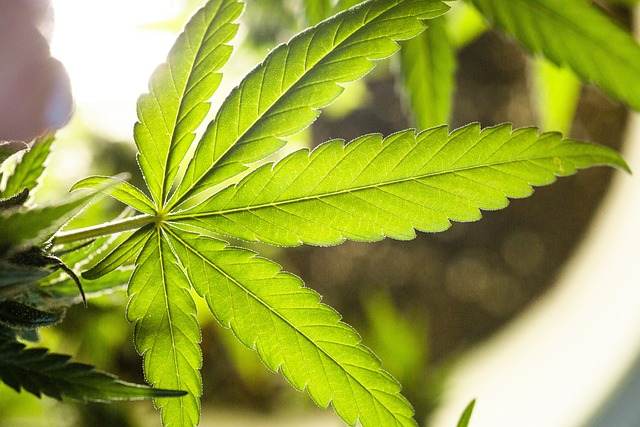
Delta-9-tetrahydrocannabinolic acid (THCA) is the non-psychoactive precursor to the well-known cannabinoid delta-9-tetrahydrocannabinol (THC). Found abundantly in raw cannabis flowers, THCA has garnered attention for its potential health benefits, particularly its anti-inflammatory effects. Research indicates that THCA interacts with the body’s endocannabinoid system through its affinity for the CB1 and CB2 receptors, which are involved in regulating pain, inflammation, and immune responses. This interaction may offer relief from inflammatory conditions without the psychoactive effects associated with THC. Studies have shown that THCA can inhibit certain pro-inflammatory cytokines, reducing the body’s inflammatory response. In addition to its anti-inflammatory properties, THCA has been observed to exhibit neuroprotective and antioxidant effects, further expanding its potential therapeutic applications.
In the context of legal considerations, it’s pertinent to note that the status of THCA-rich products can vary by state within the U.S., with Iowa being one such state where certain hemp-derived cannabinoids, including THCA, are legally permissible under specific conditions. As of the knowledge cutoff in 2023, the Iowa Legislature passed a bill legalizing hemp and hemp-derived products, provided they contain no more than 0.3% delta-9-THC on a dry weight basis, thus also encompassing THCA, which is typically present in raw hemp flower prior to decarboxylation into THC. Users in Iowa interested in exploring the benefits of THCA should ensure compliance with state and federal laws, as regulations can evolve over time. The anti-inflammatory effects of THCA are a subject of ongoing research, with potential implications for various inflammatory conditions, making it an area of significant scientific interest.
THCA, or tetrahydrocannabinolic acid, has emerged as a non-intoxicating compound with promising benefits, particularly for those seeking pain relief and anti-inflammatory effects. As its legality and accessibility continue to expand in Iowa—making it THCA legal in Iowa—the interest and research surrounding this cannabinoid precursor to THC are growing. This article has delved into the healing properties of THCA flowers, revealing their potential therapeutic applications without the psychoactive effects associated with its more famous counterpart, THC. As the understanding and use of THCA continue to evolve, it is clear that this natural substance holds considerable promise for those looking to harness its benefits within the realm of legal cannabinoid products.
